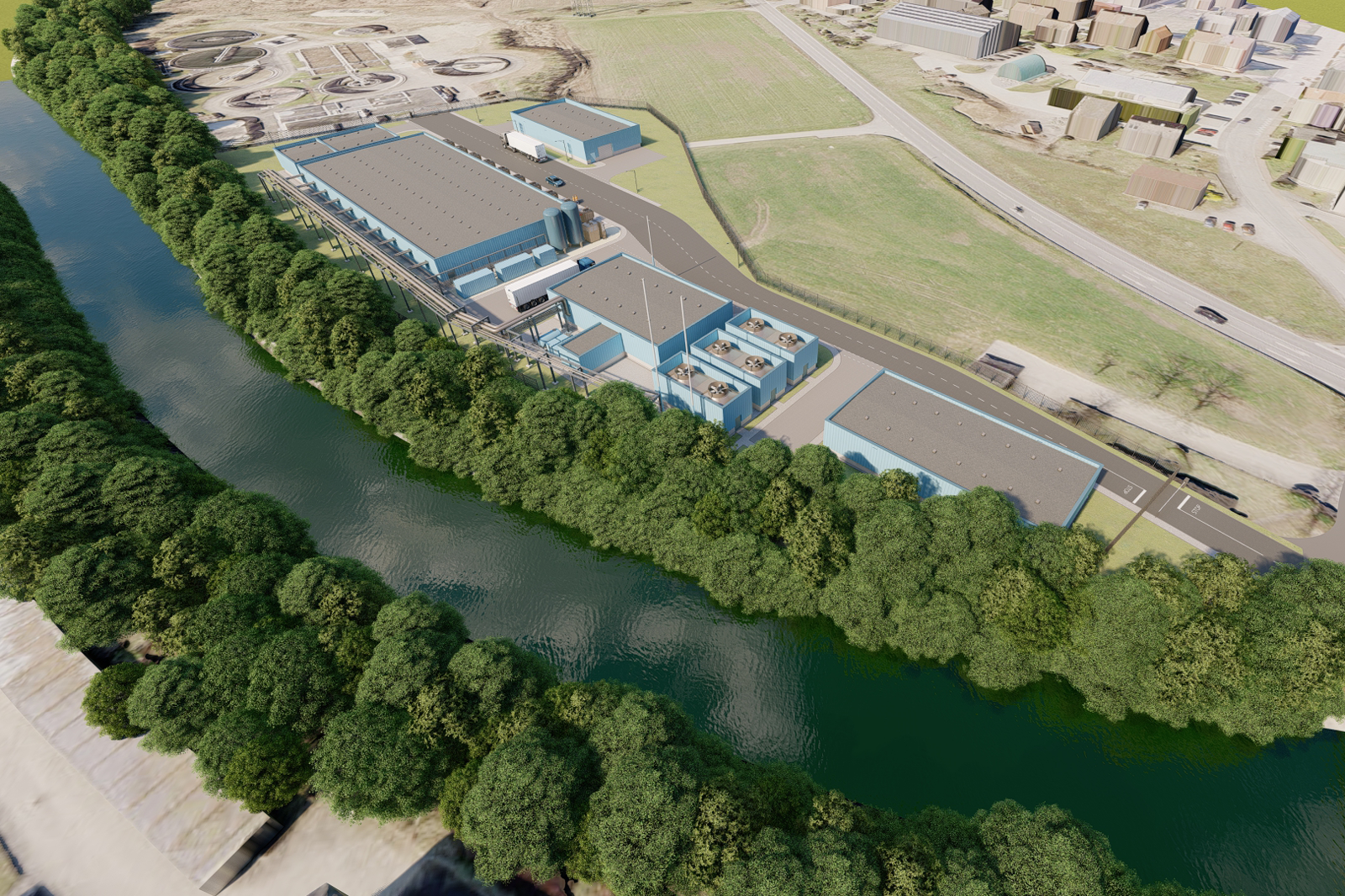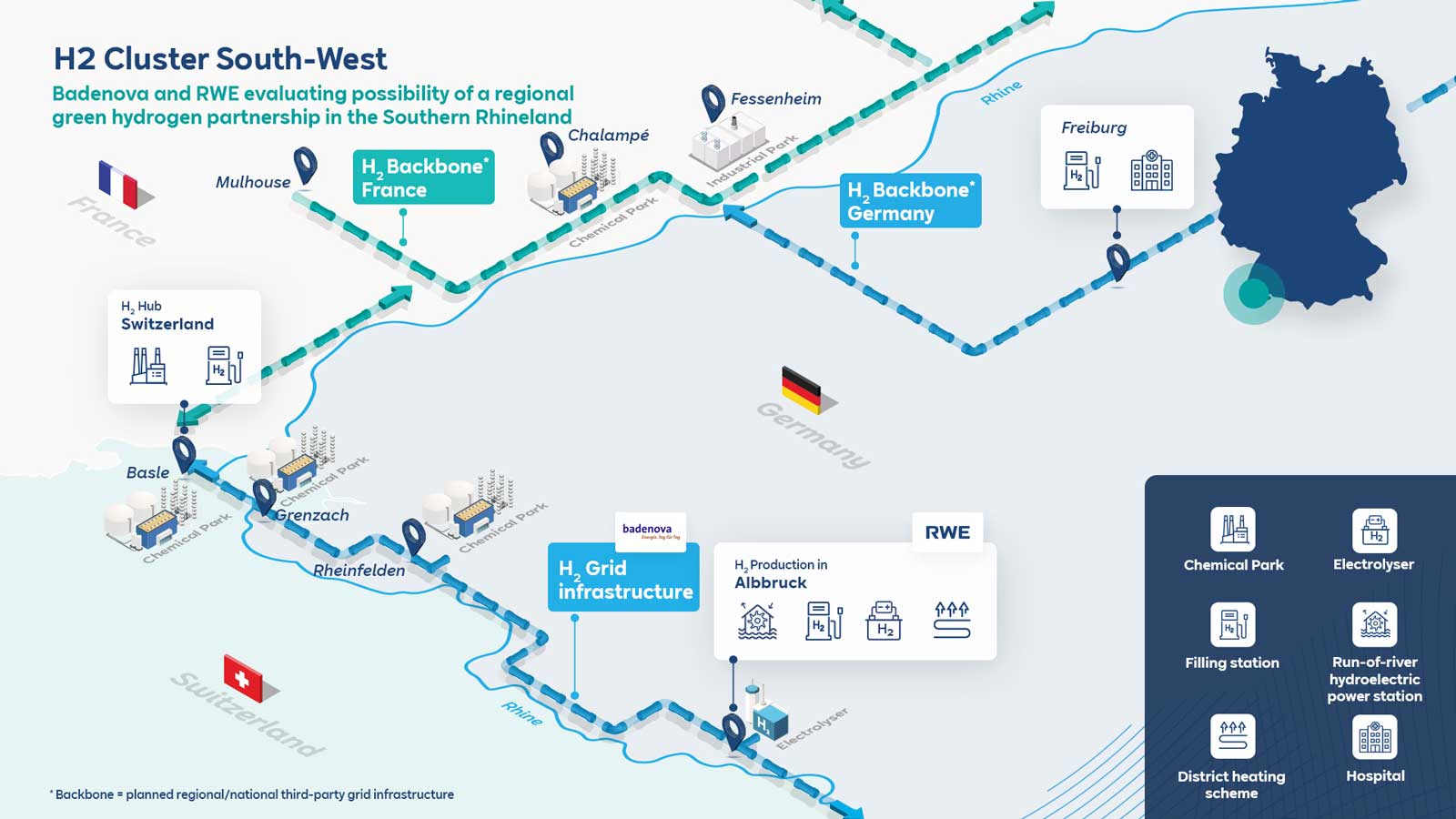badenova
(in German)
The synergy of renewable power production and the sustainable transformation of electricity into storable green energy at Albbruck demonstrates the opportunities for the energy transition on a grand scale.
At the border between Germany and Switzerland, 1,400 cubic metres of water per second surge through the RADAG Rhine hydroelectric power station in Albbruck. That is the equivalent of the daily water consumption of a small town. Thanks to state-of-the-art machinery and new technology, the run-of-river plant produces an average of 660 million kilowatt hours or 660 gigawatt hours (GWh) of renewable power annually – enough to supply over 200,000 households with green electricity. As the baseload-capable hydroelectric plant is contributing to successful, cross-border energy transition, around 43 million euros was invested between 2015 and 2020 to modernise the Rhine power plant. Ten percent more output and maintenance-free operation was achieved as a result of that upgrade.


The main focus of the project is construction of a 50-MW electrolysis plant to produce hydrogen. Most of the electricity required to power the electrolysers, due to be commissioned by the end of 2029, would be supplied by the run-of-river power plant. The plan is to feed the green hydrogen into a H2 pipeline for use on both sides of the Upper Rhine in the Freiburg-Loerrach-Waldshut region as well as in Basel-Zurich. Potential customers include industrial and logistics companies. As well as green hydrogen – about 8,000 tons of it per year – the heat and oxygen generated as a by-product of the electrolysis process will also be utilised.

The H2@Hydro proposal will make a key contribution to climate neutrality in the region – particularly for sectors unable to put renewable power to direct use.
With its H2@Hydro initiative, RWE will help regional industrial companies achieve their climate goals. Green oxygen can be used as a valuable resource for municipal wastewater treatment plants. Green district heating systems can be harnessed in residential and commercial areas and used to heat the new Upper Rhine Health Park. Furthermore, green district heating is also suitable for the supply of hot water and cooling systems.
H2@Hydro offers tangible local benefits, with climate-neutral applications in close proximity to the plant, e.g. the municipal waste treatment plant, Upper Rhine Health Park, new Albbruck city precinct and local logistics companies. By linking its hydrogen, oxygen and heat production to the plants of regional customers, H2@Hydro will create climate-neutral, future-proof applications – applications that use existing infrastructure to better exploit the potential of the hydroelectric power station, further develop the commercial location and community of Albbruck in a sustainable manner and support them on the path to climate neutrality.

Click on the image to zoom


Our spokesperson for the H<sub>2</sub>@Hydro project of RWE would be happy to hear from you via this contact form.